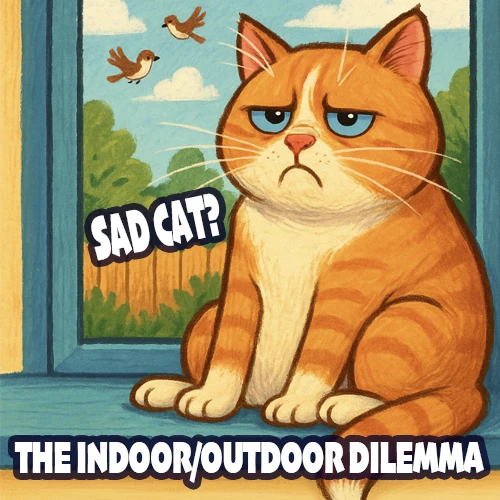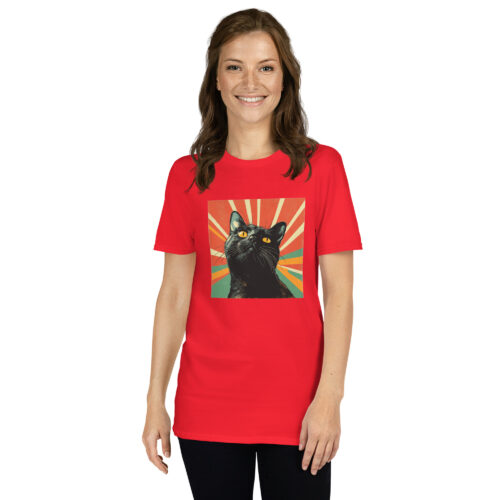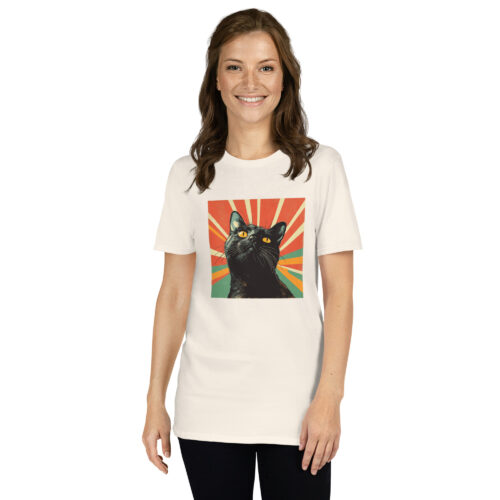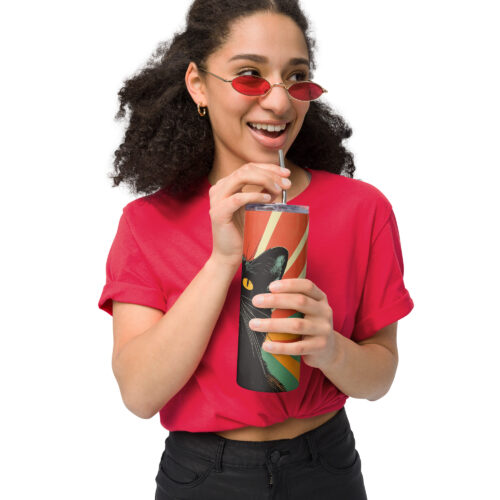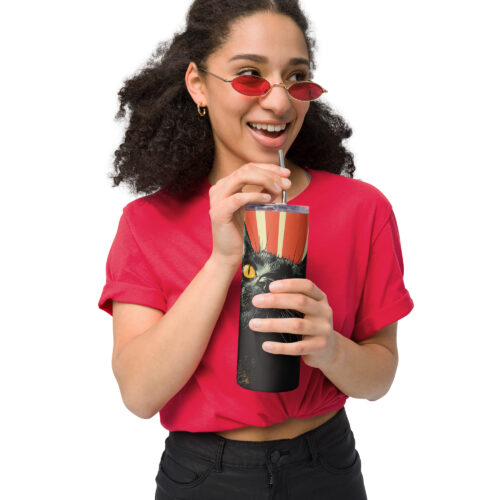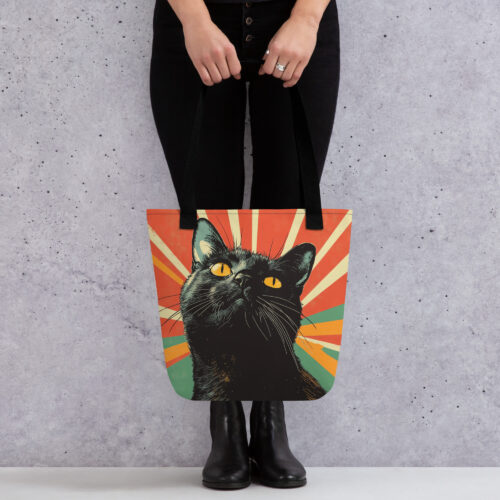
Purrs Behind the Counter: NYC’s Bodega Cats Fight for Official Recognition
Table of Contents
Key Takeaways: NYC's Bodega Cats
- Bodega cats are beloved fixtures in NYC corner stores, serving both as pest controllers and unofficial neighborhood mascots
- Despite their popularity, these cats technically violate health codes, putting store owners at risk of fines
- A community petition with over 10,000 signatures is seeking official recognition and protection for bodega cats
- The proposed solution includes a certification program, care standards, and a veterinary support fund
- This grassroots movement highlights how urban communities can advocate for compassionate coexistence with animals
Have you ever stepped into a New York City corner store late at night and felt the gentle brush of fur against your ankle? Or noticed a pair of curious eyes watching you from atop the cereal boxes? If so, you’ve been blessed with an encounter with one of NYC’s most beloved unofficial employees – bodega cats!
These furry shopkeepers have been a cherished fixture in New York’s corner stores for generations, but now they’re at the center of a heartwarming community movement. In this post, we’ll explore how New Yorkers are rallying to protect these whiskered workers, the unique cultural significance they hold, and what the future might look like for these feline friends who call the city’s delis and corner markets home.
Meet the Four-Legged Staff: Why Bodega Cats Matter
In New York City, where the pace is relentless and personal connections can be fleeting, bodega cats provide something special – a moment of warmth and familiarity in the everyday hustle. These felines have become neighborhood celebrities in their own right, known for lounging among snack displays, watching the world go by from sunny windows, or accepting gentle pets from regular customers.
But these cats aren’t just there for cuddles and Instagram photos. They serve a crucial practical purpose in the urban ecosystem. NYC’s notorious rat problem meets its match in these skilled hunters who keep rodents and other pests away from food stores without the need for harmful chemicals or traps. It’s an arrangement as old as civilization itself – humans and cats working together in a mutually beneficial partnership.
“Sometimes they don’t even come to buy anything – they just come to be nice with the cat,” one deli employee shared about his store’s resident feline.
This perfectly captures the community-building role these animals play. In a big city where people often hurry past each other without a glance, the presence of a friendly cat can create surprising moments of connection between strangers.
Some of these four-legged employees even achieve minor celebrity status! Take Mimi, a fluffy gray-and-white cat in Greenpoint, Brooklyn, who skyrocketed to fame after a customer’s TikTok video garnered over 9 million views. Mimi’s viral moment didn’t just bring attention to her – it forged a friendship between the customer who posted the video and the bodega’s owner, highlighting how these animals spark human connections.
The Regulatory Riddle: Why Bodega Cats Need Protection
Despite their beloved status and practical benefits, bodega cats exist in a precarious legal position. New York State health regulations technically prohibit live animals (except service animals) from establishments that sell food. This means store owners who house these helpful cats could face fines ranging from hundreds to thousands of dollars if caught by inspectors.
It’s a strange contradiction: the cats are there to improve cleanliness by keeping rats away, yet the law views the cats themselves as a potential health risk. Most New Yorkers find this regulation puzzling at best, especially given the well-known effectiveness of cats as a natural pest control solution.
In practice, enforcement of this rule has been inconsistent. Health inspectors often turn a blind eye unless there’s a specific complaint, creating an unofficial “don’t ask, don’t tell” policy around bodega cats. The New York State Department of Agriculture has even noted that inspectors typically provide education rather than immediate penalties when they spot a cat. But the threat of fines still looms over store owners, creating unnecessary stress for these small business operators.
This tension isn’t new. Back in 2016, a customer left a one-star Yelp review complaining about a bodega cat in Manhattan’s East Village, setting off a firestorm of outrage from New Yorkers who rushed to defend the feline. That incident sparked a small movement then, but what’s happening now is much bigger.
The Whisker Revolution: New Yorkers Take Action
In true New York fashion, cat lovers and community members aren’t just complaining about the regulations – they’re organizing to change them. An online petition launched by Dan Rimada, founder of the popular Instagram account @BodegaCatsOfNewYork, has been gaining serious momentum. As of early April 2025, over 10,000 people have signed in support of formal protections for bodega cats and the shop owners who care for them.
The “Protect Our Bodega Cats” campaign isn’t just about sentiment – it’s a thoughtful proposal with practical solutions. The plan includes several key elements:
- No more fines for responsible owners: Eliminating penalties for bodegas with cats, provided they meet certain cleanliness and cat care standards
- Certification program: Creating a voluntary system where store owners can take a free training course on proper pet care and food safety, and follow specific guidelines (like keeping cats away from food prep areas)
- Veterinary support fund: Establishing a $30,000 seed fund to help cover vet bills, vaccinations, spay/neuter surgeries, and emergency care for bodega cats
- Community oversight: Implementing a reporting system where concerns about a cat’s health or treatment can be addressed promptly
This multi-faceted approach aims to satisfy both sides – keeping cats in stores while addressing health concerns through education and standards. It’s the kind of pragmatic compromise New Yorkers excel at crafting.
The public response has been overwhelmingly positive. Customers across neighborhoods have voiced support, with many saying they’re “on board with anything that will protect the beloved bodega cat.” Even people who aren’t particularly passionate about cats recognize their cultural importance to the city.
Store owners, too, are embracing the campaign. At one Upper East Side deli, a worker proudly showed off their cat Marshmallow (a fluffy fixture for nine years) and mentioned he “signed the petition on the cat’s behalf.” Staff jokingly refer to Marshmallow as not just the manager but the queen of the store – a sentiment many bodega employees share about their feline colleagues.
View this profile on Instagram
Beyond Sentiment: The Welfare Perspective
While the campaign is partly driven by New Yorkers’ affection for these cats, it also addresses serious animal welfare concerns. Currently, because bodega cats exist unofficially, some may not receive regular veterinary care or could be abandoned if a store closes suddenly.
Animal advocates supporting the petition have pointed out that a formal program would actually improve conditions for these cats by establishing protocols for health monitoring and owner accountability. Sadly, there have been cases of sick or malnourished cats found abandoned in shuttered delis by rescuers – situations a structured program could help prevent.
One independent rescuer emphasized that while bodega cats are beloved, too many have suffered from neglect over the years. This initiative is as much about ensuring proper care for the cats as it is about protecting owners from fines – a win-win proposition for both the animals and the people who look after them.
Compassionate Cohabitation: A Model for Urban Living
What’s happening with New York’s bodega cats represents something bigger: finding ways for humans and animals to share urban spaces in mutually beneficial arrangements. Rather than strict separation or ignoring legitimate concerns, the city is exploring a middle path that respects both human and animal needs.
Imagine a future where a pawprint sticker in a bodega window signals that the store is a certified cat-friendly business – meaning there’s a healthy, well-cared-for feline inside who belongs there legally. Such a program would not only preserve a cherished tradition but could inspire other cities to consider humane approaches to urban animal issues.
From a welfare perspective, the proposed changes (like the support fund and routine vet checks) would be transformative. No longer would bodega cats exist in legal limbo where their care depends solely on an individual owner’s means and knowledge. With community funding and oversight, these cats would receive necessary medical care, likely leading to longer, healthier lives.
These cats also provide meaningful emotional support to community members. One shopkeeper shared that his cousin, who was fasting for Ramadan, found that playing with the bodega cat helped distract him from hunger during the long day. In a city where many residents can’t have pets in their apartments or spend limited time in natural settings, these brief animal interactions offer valuable moments of comfort and joy.
Small Paws, Big Impact: Why This Movement Matters
The movement to protect New York’s bodega cats highlights something powerful about community action. What started as social media advocacy has transformed into real-world change, with local news coverage, thousands of petition signatures, and conversations with city officials.
This grassroots campaign demonstrates how neighbors can come together to preserve something they value – not just for nostalgia’s sake, but with thoughtful improvements. The proposed certification program wouldn’t just maintain the status quo; it would create better conditions for both the cats and their human caretakers.
The initiative also represents a refreshing response to urban challenges. Instead of rigid enforcement of outdated regulations or ignoring legitimate health concerns, the community is proposing a practical, balanced solution. It’s a reminder that we can find creative ways to accommodate both human needs and animal welfare in our shared spaces.
For cat lovers everywhere, this movement carries special significance. It shows that even in a massive urban environment, people recognize the value of our feline friends – not just as pets in homes, but as community members who contribute to our collective well-being in their own unique way.
The Road Ahead: What’s Next for NYC’s Feline Shopkeepers
The momentum behind the bodega cats campaign continues to build. Public enthusiasm has sparked constructive conversations with city council members, health officials, and animal welfare groups. There’s optimism that with continued advocacy, a pilot program might soon launch – perhaps with a handful of stores officially enrolling their cats in the certification initiative to prove the concept can succeed.
Such a program would be a proud moment for New Yorkers: finding a way to honor tradition while improving animal welfare standards. It would show that regulations can be updated to reflect community values without compromising public health.
For shop owners who have lived in fear of fines, this change would bring peace of mind. For communities who treasure their local feline friends, it would ensure these beloved fixtures remain part of the neighborhood fabric. And for the cats themselves, it would mean better care, more security, and the official recognition they’ve long deserved.
What Can You Do to Help?
If you’re inspired by New York’s bodega cat movement, there are plenty of ways to support similar initiatives in your own community:
- Support local businesses with shop cats: Frequent establishments that care for community cats, and let the owners know you appreciate their feline staff
- Volunteer with local rescues: Many organizations help place cats in stores and businesses as “working cats” – a win for both the business and cats who may not thrive in traditional homes
- Be vocal about humane policies: When outdated regulations threaten animal-friendly businesses, speak up at community meetings or contact local representatives
- Share positive stories: Use social media to highlight how animals and businesses can coexist beautifully
Final Thoughts: A City United by Whiskers
The renewed interest in New York’s bodega cats reveals something heartwarming about urban life – beneath the concrete and hurry, there’s a community that cares deeply about its feline neighbors. From thousands of petition signatures to news coverage to casual conversations at corner stores, the message is clear: these cats matter.
This isn’t just about protecting a few dozen store pets; it’s about recognizing the unique bonds that form in city neighborhoods. In a place often characterized by anonymity and hustle, the collective defense of these small creatures speaks volumes about our capacity for connection and compassion.
The story of the bodega cats reminds us that animals are integral parts of our communities. They’re not just pest controllers or mascots – they’re neighbors and friends who make our days brighter with their presence. In return for their services (both practical and emotional), they deserve protection, care, and respect.
As the campaign continues, we at The Kitty Kiosk will be following developments closely. We’re optimistic that with continued advocacy, New York’s bodega cats will soon have the official recognition they deserve – ensuring that future generations of New Yorkers can continue to enjoy a friendly purr along with their morning coffee or late-night snack run.
What do you think about this movement to protect bodega cats? Have you had a memorable encounter with a shop cat in your neighborhood? Share your stories in the comments below!
Loved this post? Explore more helpful cat care tips on our cat blog and join our community of cat lovers to share stories and advice!
Disclosure: This post contains affiliate links. If you purchase through these links, we may earn a commission at no extra cost to you.



